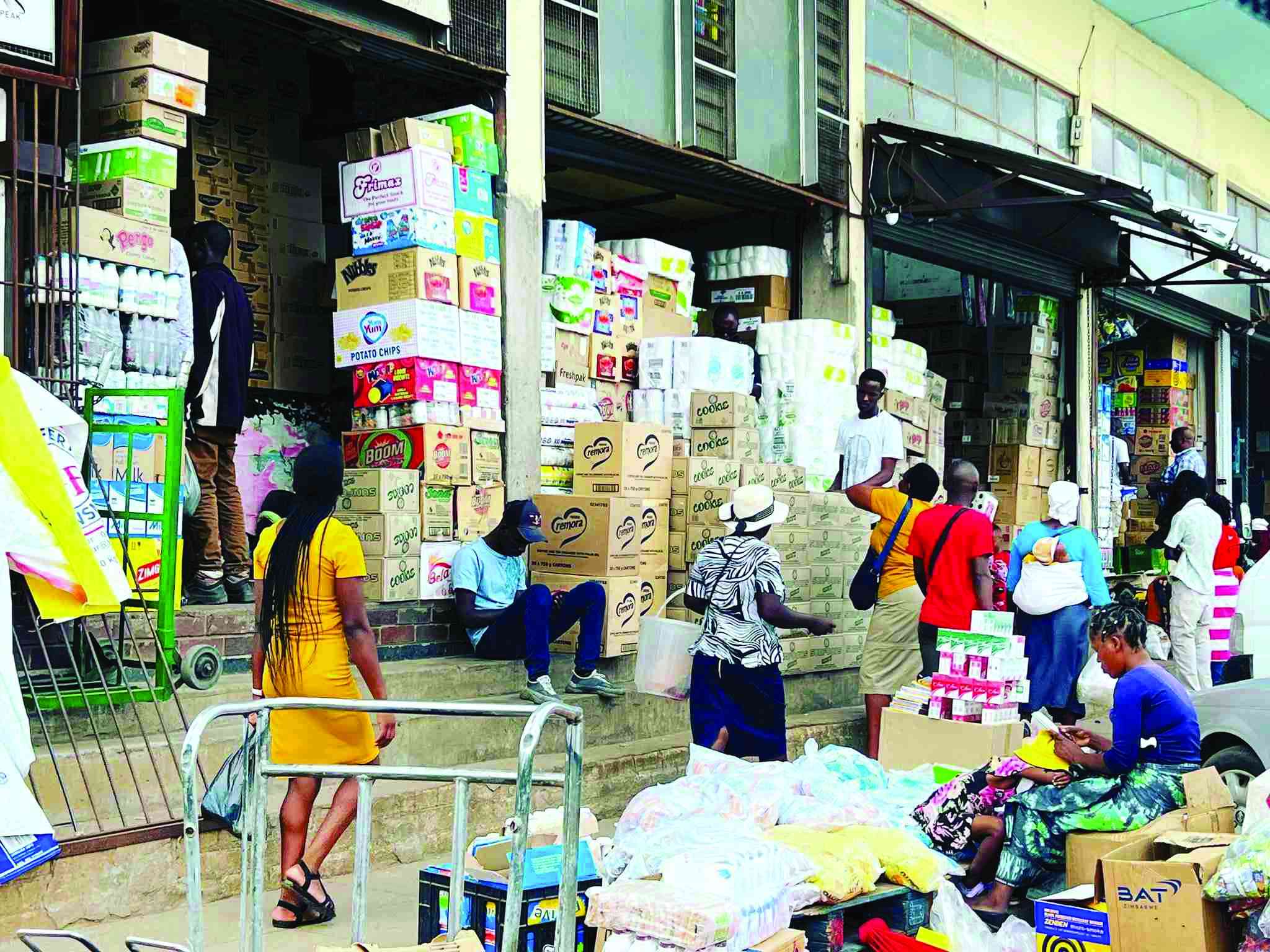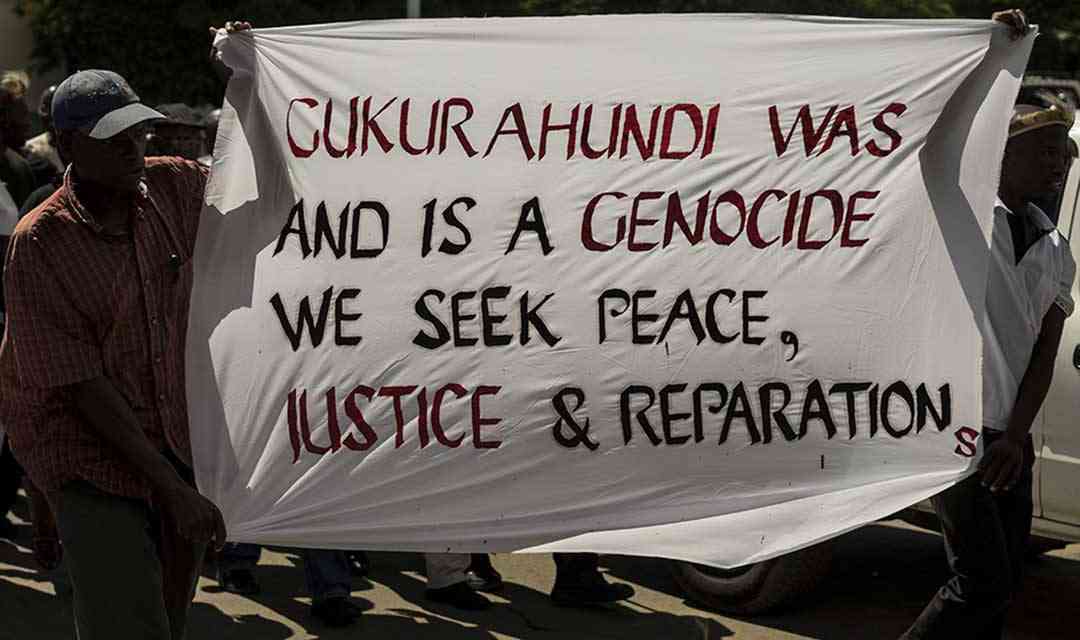
ZIMBABWE’s untaxed informal market presents revenue loss risks while exposing the country’s fragile economy to widespread illicit financial flows (IFFs), which are estimated at US$1,5 billion annually by the Zimbabwe Anti-Corruption Commission (Zacc).
IFFs refer to the illegal movement of money across borders and can be linked to corruption, tax evasion, and other criminal activities.
Experts have advised the government to implement a comprehensive strategy to combat these flows by formalising businesses, enhancing banking regulations, and addressing smuggling operations.
The advice follows an investigation on IFFs by the Zimbabwe Independent into a complex network of black market traders, gold smugglers, and money changers who fuel financial crimes that circumvent formal banking and tax regulations.
Financial experts agree that the absence of formal banking involvement, weak regulatory enforcement, and the high compliance costs linked to official business registration contribute to the growth of underground financial networks.
Additionally, informal cross-border trade between Zimbabwe and South Africa worsens the situation, fostering an environment ripe for financial crime and economic instability.
In separate interviews, sources familiar with these operations, who asked not to be named due to safety reasons, say a key component of IFFs is the role played by “runners” — individuals who hold multiple bank accounts in South Africa to conduct business transactions on behalf of people in Zimbabwe.
These runners facilitate payments for smuggled gold proceeds, which are then used to procure goods such as cars, electronics, groceries, and clothing for Zimbabwean buyers.
- Chiri vows to stop looting
- Arbitration insights: The resolution of international trade disputes
- Chiri vows to stop looting
- Arbitration insights: The resolution of international trade disputes
Keep Reading
The Independent established that people in Zimbabwe pay local dealers in cash. The dealers then instruct South African account holders to purchase goods on their behalf, effectively bypassing the banking system and tax authorities.
A source in the banking sector, who requested anonymity, said this practice has left banks and tax authorities bleeding revenue.
“It has been going on for a while, particularly with gold smugglers, who know they cannot return large sums of money to Zimbabwe unnoticed,” the source explained.
“The majority of them have accounts with South African banks, where they deposit their earnings. They then use those funds — through illegal means — to buy goods for Zimbabweans, including vehicles, school fees, and consumer goods.
“The banks and the tax collector receive nothing, contributing to illicit financial flows totalling billions of dollars."
In Zimbabwe, informal financial networks extend beyond gold smuggling. Money changers and “malaichas” — informal couriers who smuggle goods across borders — play a critical role in the movement of cash and merchandise.
Malaichas use corrupt customs officials to move contraband through border posts undetected, ensuring that no duties or taxes are paid to the Zimbabwe Revenue Authority (Zimra).
One black-market trader told the Independent that people prefer using cash to avoid transaction taxes such as the 2% charge on EcoCash transactions.
“People just come here, give us cash, and we connect with our people in SA to facilitate the payments. We can get you anything — it’s that easy,” the trader said.
Zimra's marketing and corporate affairs executive, Gladman Njanji, acknowledged that the informal economy poses serious risks to revenue collection.
“Informal money changers and runners facilitate cross-border payments outside formal banking channels, making these transactions susceptible to money laundering, tax evasion, and government revenue losses,” he said.
“This results in underreported import duties, VAT, and other tax obligations, depriving the country of crucial funds."
While the informal sector is a major driver of IFFs, experts say the formal sector is also complicit.
Zimbabwe Tax Payers Association (ZITAP) director Itai Zimunya stressed that the country could significantly increase tax revenue if the government enforced banking regulations and formalised the economy.
“If the government collected US$3,5 billion in tax revenue in 2024 from only 35% of transactions being formal, it is plausible that the actual tax potential exceeds US$7 billion in 2025,” Zimunya said.
“Enforcing regulations, promoting banking, and formalising business operations could dramatically improve revenue collection.”
He further explained that some cash-rich businesses engage in informal foreign currency trading and cross-border transactions to avoid paying tax.
“Many medium-sized businesses offer bureau de change services by collecting cash at a premium in Zimbabwe and depositing it in South Africa or China based on an invoice,” Zimunya said.
“Large corporations also engage in transfer pricing, under-invoicing exports, and shifting profits offshore through shell companies. This significantly reduces the country’s tax base.”
Economist Clemence Machadu said the country's high levels of informalisation are exacerbating currency instability and undermining monetary policy.
“The fact that these transactions go unrecorded results in significant tax revenue losses. It also weakens banks' deposit base, increases reliance on cash transactions, and fuels exchange rate volatility,” he said.
“The continued existence of parallel markets and currency distortions is a direct consequence of these informal financial flows.”
Investment analyst Enock Rukarwa echoed these sentiments, stating that high taxes, bureaucratic red tape, and costly licensing requirements have forced many businesses into the informal sector.
“Because formal compliance is expensive, businesses prefer to operate informally, leading to negative externalities such as illicit financial flows,” he said.
“If formal banking transactions were made cheaper and more accessible, the government would have a better chance of reducing informalisation."
In addition to Zimbabwean players, South African financial institutions have also been implicated in IFFs.
A 2023 Al Jazeera investigation revealed that three major South African banks were laundering millions of dollars in illicit gold smuggling deals, with regular bribes paid to bank officials.
Prominent Zimbabwean figures, including miner Henrietta Rushwaya, Special Envoy Uebert Angel, and business moguls Ewan Macmillan and Simon Rudland, were named in the exposé.
In response to the allegations, Mohamed Khan told Al Jazeera that all allegations against him were false.
Angel said he was undercover when he offered to break the law. On the other hand, Rudland said the allegations against him formed part of a smear campaign by an unidentified third party.
Following these revelations, Zimbabwe's central bank froze the assets of Cleopas Chidodo, David Chirozvi, Mehlululi Dube, and Fredrick Kunaka, four individuals accused of aiding long-running gold smuggling and money laundering rings.
While Africa is battling illicit financial flows, experts agree that addressing the issue requires a bold, Africa-centred approach to global tax cooperation.
In February, the Southern Africa Resource Watch (SARW) published a report estimating that Zimbabwe loses approximately US$100 million monthly in critical battery metals due to illicit trade, highlighting the urgent need for regulatory reform.
Zimra remains confident that measures implemented by the government and financial authorities will help curb illicit financial flows.
“The government is improving formal banking accessibility, promoting regulated payment systems, enhancing digital financial services, and enforcing stricter anti-money laundering (AML) regulations. Strengthening compliance with international tax frameworks is also critical to reducing revenue leakages," Njanji said.
However, Zimunya argued that more decisive action is needed. “Zimbabwe should take a bold approach similar to those enacted under US President Donald Trump, where raw material exports were taxed more heavily and all export proceeds were required to go through banking systems.
“Externalisation, transfer pricing, and speculative financial activities must be criminalised. Institutions such as Zimra and the Zimbabwe Investment Development Agency (Zida) must collaborate to incentivise business formalisation," he suggested.
The project received support from the Thomson Reuters Foundation as part of its global work aiming to strengthen free, fair and informed societies. Any financial assistance or support provided to the journalist has no editorial influence. The content of this article belongs solely to the author and is not endorsed by or associated with the Thomson Reuters Foundation, Thomson Reuters, Reuters, nor any other affiliates.






